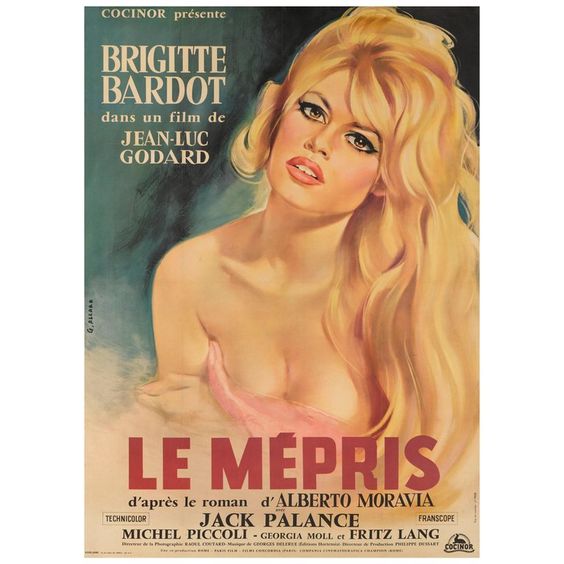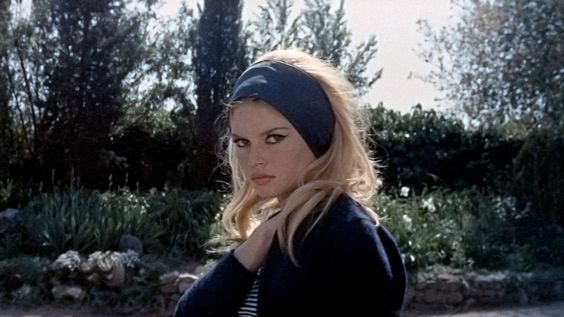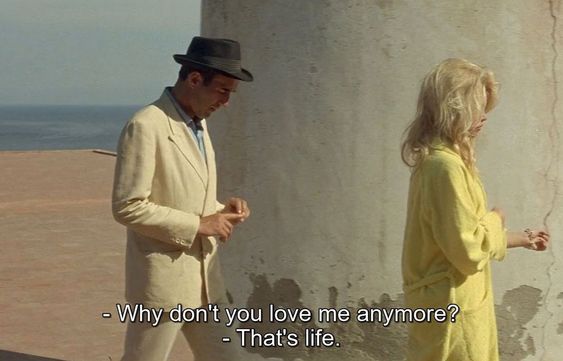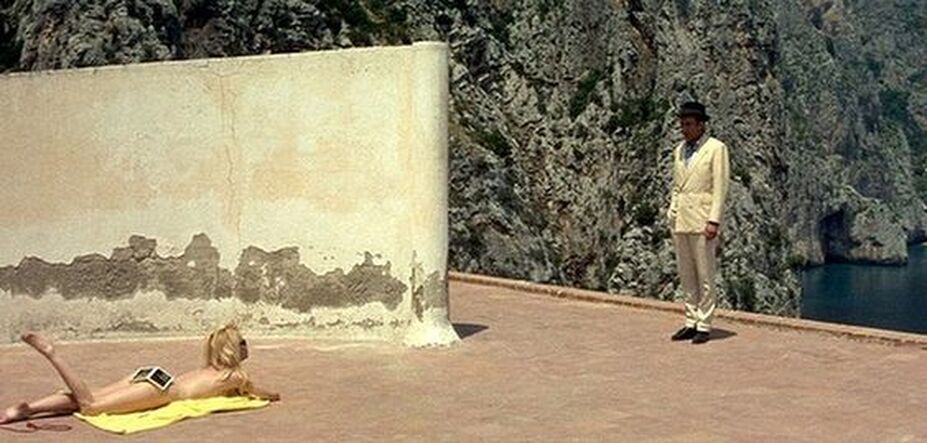Contempt (Le Mepris) 1963
|
Directed by: Jean-Luc Godard
Starring: Bridget Bardot, Michael Piccoli, Jack Palance, Fritz Lang Studio: Studio Canal IMDB Rating: 9 The recent 4K restoration of Le Mepris (Contempt), one of Godard’s many masterpieces, is a godsend to cinephiles everywhere. While his death in 2022 cast a much-deserved light on his amazing and varied career, most people were only left with the memories of seeing his films on the big screen years ago or not at all. With Le Mepris’ recent run of arthouse theatres, however, a new audience was surely brought to the French master’s rich and dynamic early career because the restoration completely captures the amazing use of color that Godard shot while filming in Capri. That he also fully illuminated the magnificent and alluring Bridget Bardot at her sensual and pouty best is also a testament to Godard’s ability to create high-minded and artistic beauty on a larger than normal budget. Landing among a half dozen classic films, beginning with Breathless (’60), A Woman is a Woman (’61), and My Life to Live (’62) before and Band of Outsiders (’64) and A Married Woman (’64) after, Le Mepris is among the greatest of all French films created during the Nouvelle Vague period and cited by Sight & Sound Magazine as the 56th Best Film of all-time in a 2022 international poll.
|
Le Mepris is the story of a disillusioned playwright (Michael Piccoli) accepting a screenwriting job for a bombastic and egomaniacal American producer (Jack Palance), against the better wishes of his wife (Bardot). The impact on the couple’s marriage is exacerbated by a combination of the flirtatious behavior of the producer, but also the obstinance of the writer, combining to create the ‘contempt’ of the title. Godard, however, makes no bones that this is a movie within his movie, opening the film with his own voiceover identifying the makers of his film, while the viewer watches Bardot walk down a deserted street at the iconic Cinecitta Film studio in Italy (the film was a Franco/Italian co-production). Godard also goes on the explain his artistic vision for the film when he intones the words of French film critic Andre Bazan by saying “The cinema substitutes for our gaze at a world more in harmony with our desires. Contempt is the story of that world.” When Godard was forced by an American producer to actually add a scene of a naked Bardot asking her husband to praise each part of her naked body, Bazan’s words became reality and Godard’s point was well made.
Godard’s inclusion of iconic German director Fritz Lang, playing the director of the film within the film, was not only a bit of sacred homage on Godard’s part, but a master stroke in reflexive filmmaking. Just as Lang is force to endure the tantrums and irrationality of the American producer while making his film within, so too did Lang suffer mightily making films for Poverty Row+ studio Columbia in the early 1950’s. Here, however, Lang, known as a tyrant on his sets, is able to adopt a more philosophical position as he mentors the young screenwriter about the vagaries and injustices of giving artistic license to the idiot producer.
While Le Mepris is generally considered Godard’s most mainstream film, there are wonderful touches and commentary throughout, most notably the differences between men and women, a subject he explored in several films. It is within the gap between the sexes that Godard does his most sublime work, examining how little perceived actions can have broader and far-reaching consequences when viewed and experienced by a man or a woman. The restoration of the film, in some ways, help to bring thee notes home by recalibrating the high and low light that Godard loved to capture naturally, allowing for the finer features and reactions of the actors to resonate more clearly. Contrasts become more pronounced, both within the natural framing, as well as in the wonderfully restored color saturation. The film itself is a wonderful and approachable vehicle for those new to Godard, but still among his best for seasoned fans.
Le Mepris has been released by Lionsgate Films on 4k UHD and Blu-ray disc in a restored version. Go to your favorite online retailer to purchase.
While Le Mepris is generally considered Godard’s most mainstream film, there are wonderful touches and commentary throughout, most notably the differences between men and women, a subject he explored in several films. It is within the gap between the sexes that Godard does his most sublime work, examining how little perceived actions can have broader and far-reaching consequences when viewed and experienced by a man or a woman. The restoration of the film, in some ways, help to bring thee notes home by recalibrating the high and low light that Godard loved to capture naturally, allowing for the finer features and reactions of the actors to resonate more clearly. Contrasts become more pronounced, both within the natural framing, as well as in the wonderfully restored color saturation. The film itself is a wonderful and approachable vehicle for those new to Godard, but still among his best for seasoned fans.
Le Mepris has been released by Lionsgate Films on 4k UHD and Blu-ray disc in a restored version. Go to your favorite online retailer to purchase.








